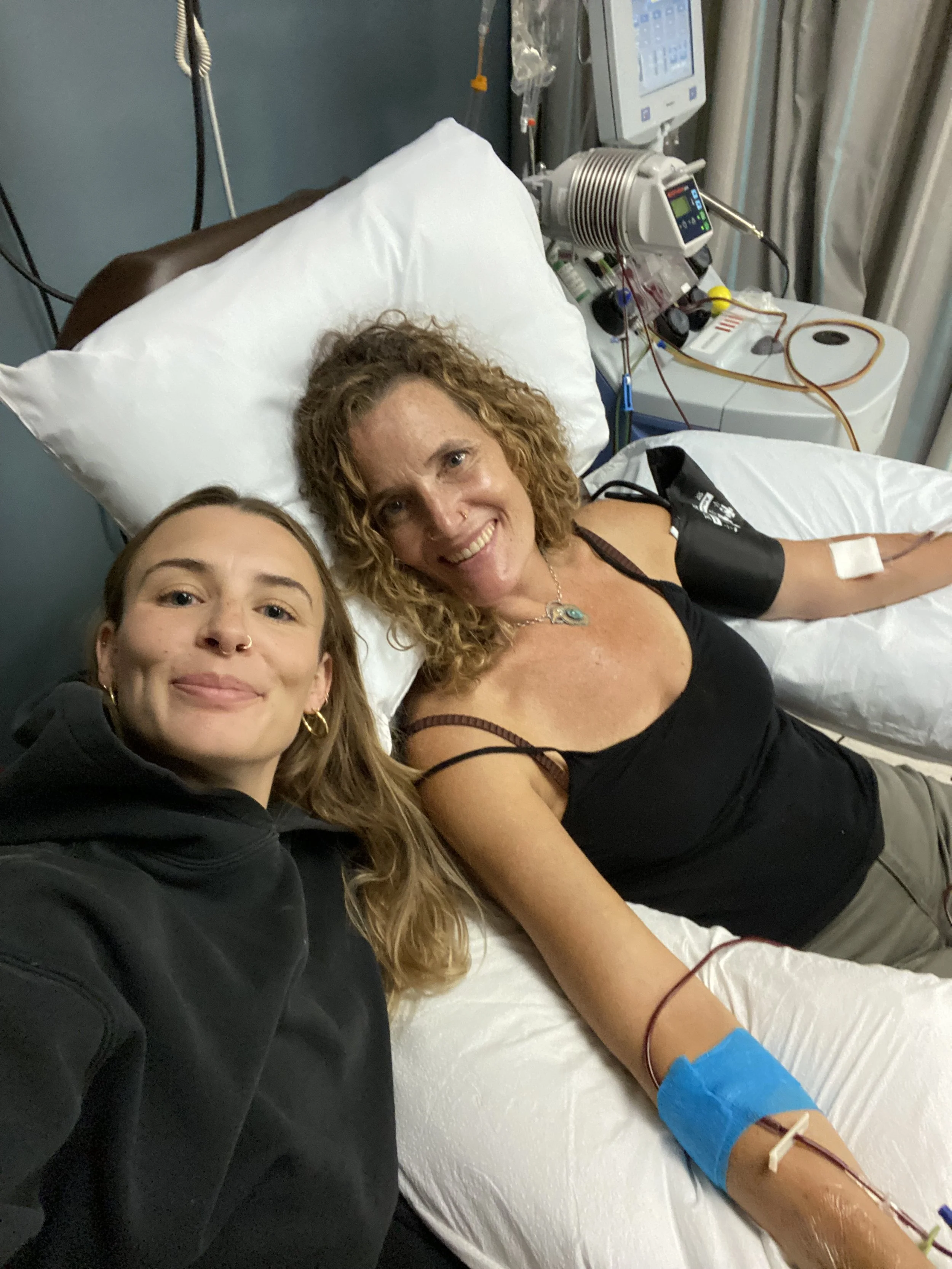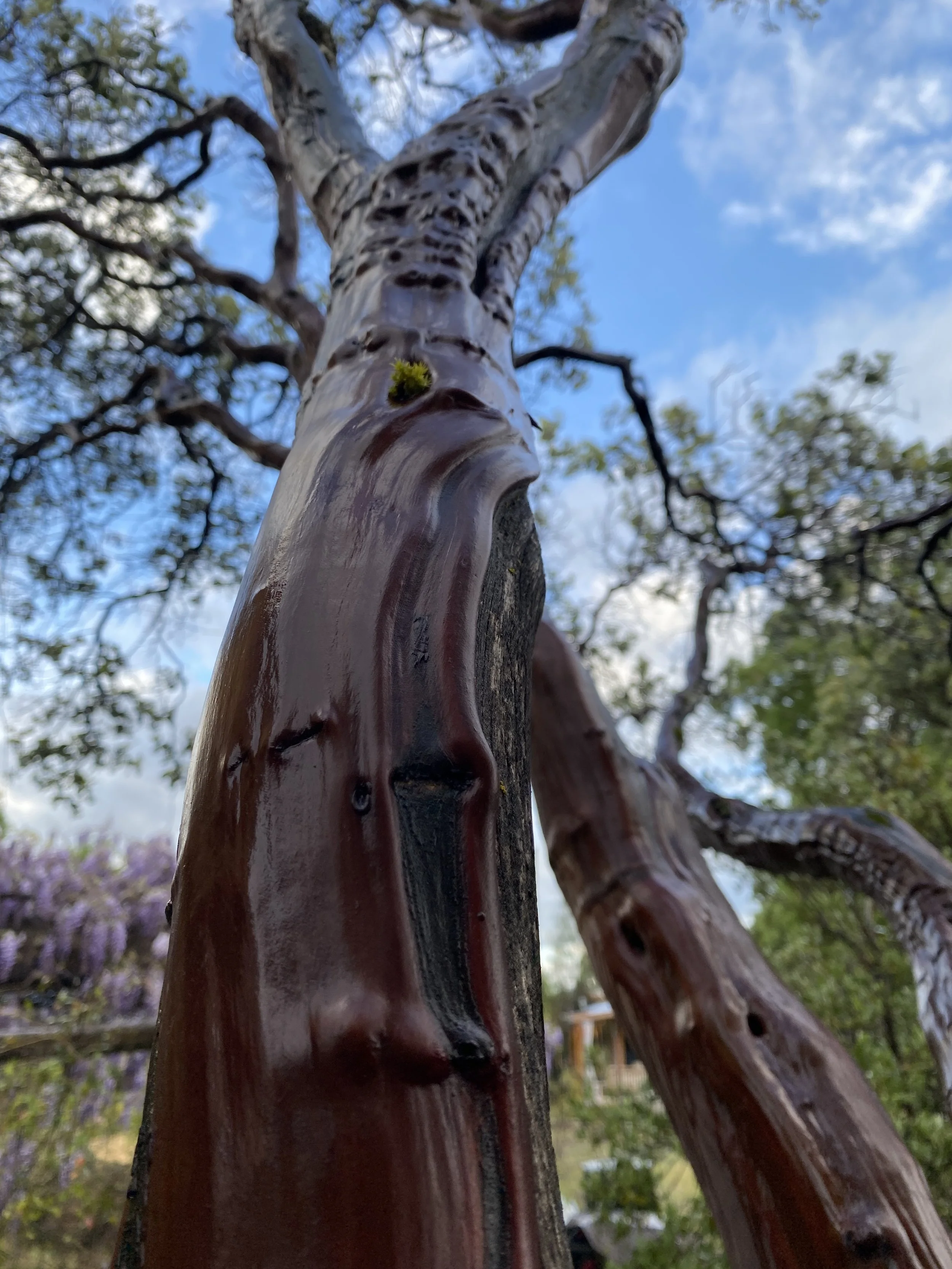The Blind Eye of Depression
/Life can feel unwieldy sometimes and I find myself in my personal and professional world, conscious of the importance of not bearing the weight of that alone. It takes courage to say you need help and it takes equal courage to recognize when someone’s suffering may be too weighty to hold. On September 14th a man that I had only known for three days through his stay on my land, shot and killed himself. Though I recognized through our interactions that he was navigating sadness and disillusionment around his purpose in life, I would never have thought that this would be the outcome. My middle daughter Wrenna was with me when we found him. The experience was more difficult than I can fully articulate, but writing has helped me to navigate the complexity of my own suffering as I heal from the impact of the experience. Whatever the cause of suicide, one thing I do know is that we need to begin bringing conversations around mental illness, lack of belonging, and desperation into the light. Shame keeps us separate. Compassion, education and honesty are necessary in the actions we take in our families and communities around our mental well-being. The questions I ask of myself around his death are anchored to my sorrow that in the midst of his experience of life, it was clearly impossible to see past his own suffering into a future that would be bearable. Writing this poem has become for me a way to hold something that has been difficult to handle and I’m sharing it with the hopes that it will not only bring connection and conversation, but that it will usher my own impulse to be a part of the healing that is necessary to cultivate a deeper sense of understanding overall.
Belonging
It’s a gamble,
welcoming strangers into your life.
He would be staying for three days.
Three
an auspicious number.
Three sides to a triangle,
three days from crucifixion to resurrection.
Three, the number of good fortune,
of past, present and future.
of birth, life and death
One
We talked just short of an hour.
His smile was shadowed with sorrow.
His composure, a kind of pliable sturdiness,
a notably resigned strength.
Two
I brought him eggs,
he stood,
met my hug
a smooth chuckle,
lonely comfort.
Three
I had come to know enough about him
to recognize that his intelligence
was both academic and soulful.
He was troubled by
why belonging evaded him.
For me
his presence
had a noble weight to it.
On the morning of his departure
he said that he would leave before dawn.
Sun rising
I gave a sideways glance
at a respectful distance.
He must have fallen asleep
in the soft morning light outside.
I wondered if he had stayed
to say goodbye.
I think I wanted that.
I chose not to wake him,
walked quietly towards
outdoor chores with my daughter
to beat the full heat of the sun
and work the land.
It was a sweet
simple morning.
I pulled foxtails out of my socks.
She and I
settled into easy conversation.
A dog barked
In the distance
too close to him.
And then I was punched with a sinking feeling
Running,
I saw him more clearly through the trees,
Neck arched over the back of the chair,
hands resting on his thighs
tight fists
curled,
a juxtaposition of relaxation.
Repulsion moved through me,
an urgent violent shake,
a slow fierce slap to the
first pushed clang of his name
ripping its way through my mouth.
Each loud scream
ricochet off of the rifle
resting between his legs.
My daughter behind me,
rough words
gun
blood
scuttled phrases of panic.
Did he know
when he chose my land,
my heart,
my life,
did he know that our
three-day connection
would be his preface to death
and with one gunshot,
explode my world?
My feet stuttered towards him,
body tight
heavy, clenched fist of me
hurtling forward.
My voice was underwater
loud punches of his name,
like a reprimand,
like a plea,
were swallowed
by the stillness of his body.
The gun confused me,
harnessed with a rope
like a puckered
anchor into the center of his chest.
He had laid open his heart to me
yesterday.
Now this.
Now a cold weapon used hours before
had punctured a raw
pit on the altar
of our connection.
All to end his suffering
and begin a ripple of pain around him.
Did he know
that my daughter
would shed everything
to get to me,
shed her fear
shed her pleasure?
Did he know
our family had been traversing
over long months,
a thin path behind
my son’s ascent from sorrow?
Days and nights
of an uphill scramble
that was finally almost wide enough
to step beside him.
Did he know this one act,
a nightmare collision of surrender
to the gnaw and ache of depression
was the only chasm I could not bridge
in myself?
A fear I’d almost quelled.
Did he know that my daughter
was strong enough for this
but shouldn’t be?
That the
sirens would break our terror
into pieces.
Did he know that his blood
would pour onto the soil,
a stain that I can’t quite remove
even after it’s gone?
That I would stand with stiff resolve
to water it in.
Did he know that my daughter
would find the right seeds,
words planted
that were more determined
than his bullet?
Our land is able to carry his pain
She said.
Our land has held more
than we ever could.
Did he know her strength
her sadness?
Did he know that his careful planning
would become
the place she had no other choice
but to survive?
What remains?
One
I can feel the slow way his leaving
is soaking into the earth of me.
Two
I can’t yet soften
the crimson curtain of color
that spread in a pattern like a blanket
over the curve of his belly.
Three
I am drawn each morning
to drink in the stillness
where in his pain
he left us,
where we surrendered
in a different way,
where we poured his rum
into the red soil of him,
burned sweetgrass to
bring redemption
over sorrows blemish.
His life,
an orchestration
much more complex than the few
music symbols
that run off the page of me,
has undone me.
No easy answers.
For me,
no beginning, middle and end.
“Belonging” written by Jaime Williams
Photo Credit Kalyja Rain Photography







